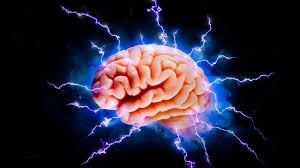Medical Conditions
Seizures

Seizures are caused by a sudden surge of electrical activity in the brain. A seizure usually affects how a person looks or acts for a short time. Someone having a seizure might collapse, shake uncontrollably, or even just stare into space. All of these are brief disturbances in brain function, often with a loss of or change in consciousness.
Seizure Basics
Usually, electrical activity in the brain involves neurons in different areas sending signals at different times. During a seizure, many neurons fire all at once. This abnormal electrical activity can cause different symptoms depending on the part of the brain involved, including unusual sensations, uncontrollable muscle spasms, and loss of consciousness.
People with epilepsy have repeated seizures.
Epilepsy tips:
- Take medicine as prescribed
- Avoid triggers (such as excessive stress, lack of sleep, antihistamine drugs)
- Get help for any learning or behavior problems
- Sees the neurologist as recommended
Safety Tips for people with Epilepsy
General Safety
- Arrange your home, and if possible, work or study space, to be safe should you have a seizure. For example, pad sharp corners, use non-slip carpet, avoid scatter rugs, and put barriers in front of fireplaces or hot stoves.
- If having a seizure during a recreational activity could lead to injury or harm, avoid the activity. Use common sense. Talk with your medical team for individual advice and precautions.
- Plan for what you and your family should do during a seizure. Create your own Seizure Response Plan so others know what to do if you have a seizure and how to prevent emergencies.
Driving
- Do not drive if you are having seizures or side effects that affect your ability to be safe on the road!
- Be honest with your doctor about your seizures. Safety comes first!
- Be honest with the DMV. It may protect you legally if problems occur later.
Water Safety
- Use common sense. If you do swim, use a buddy system. Wear a life jacket with any water activities.
- Make sure someone is around that knows how to swim, has lifesaving skills, and knows how to respond to seizures.
- Take showers instead of baths. If seizures are frequent or you tend to fall, use a shower chair and a flexible shower hose. Or sit on the bottom of an unfilled tub to shower instead of standing.
Fire Safety
- If you have uncontrolled seizures, be very careful around heat or flames.
- Put guards on open fireplaces, wood stoves or radiators.
- Don’t smoke or use matches when you’re alone. A fire could start if you drop it during a seizure.
Medication Safety
- Know the main side effects of your seizure medicines. Talk to your doctor or nurse about safety risks of the medicines you take.
- Be especially careful if you take a medicine that can affect your balance, coordination, walking or vision. These problems can cause people to fall or injure themselves.
- Be aware that some side effects occur from interactions between your seizure medicines or with other ones you take. Any medicine, even over-the-counter and herbal products or supplements can cause problems. Some foods (for example grape fruit juice) can affect medicine levels and lead to too much medicine in the blood.
Georgia Driver Licensing Laws
- A person with epilepsy may obtain a license to drive cars and trucks weighing less than 26,000 pounds if he or she has been seizure-free for 6 months.
- A person who has only nocturnal seizures may be eligible for a limited license for daylight driving only even if he or she has been seizure-free for less than 6 months.
- The Department of Driver Services may require periodic medical reports as a condition of licensing.
Links to more information:
https://www.cdc.gov/epilepsy/communications/features/firstaid.htmlhttps://www.choa.org/medical-services/neurosciences/epilepsy
https://www.cdc.gov/epilepsy/managing-epilepsy/checklist.html
References
https://www.epilepsy.com/learn/seizure-first-aid-and-safety/staying-safe© Copyright All Rights Reserved 2022